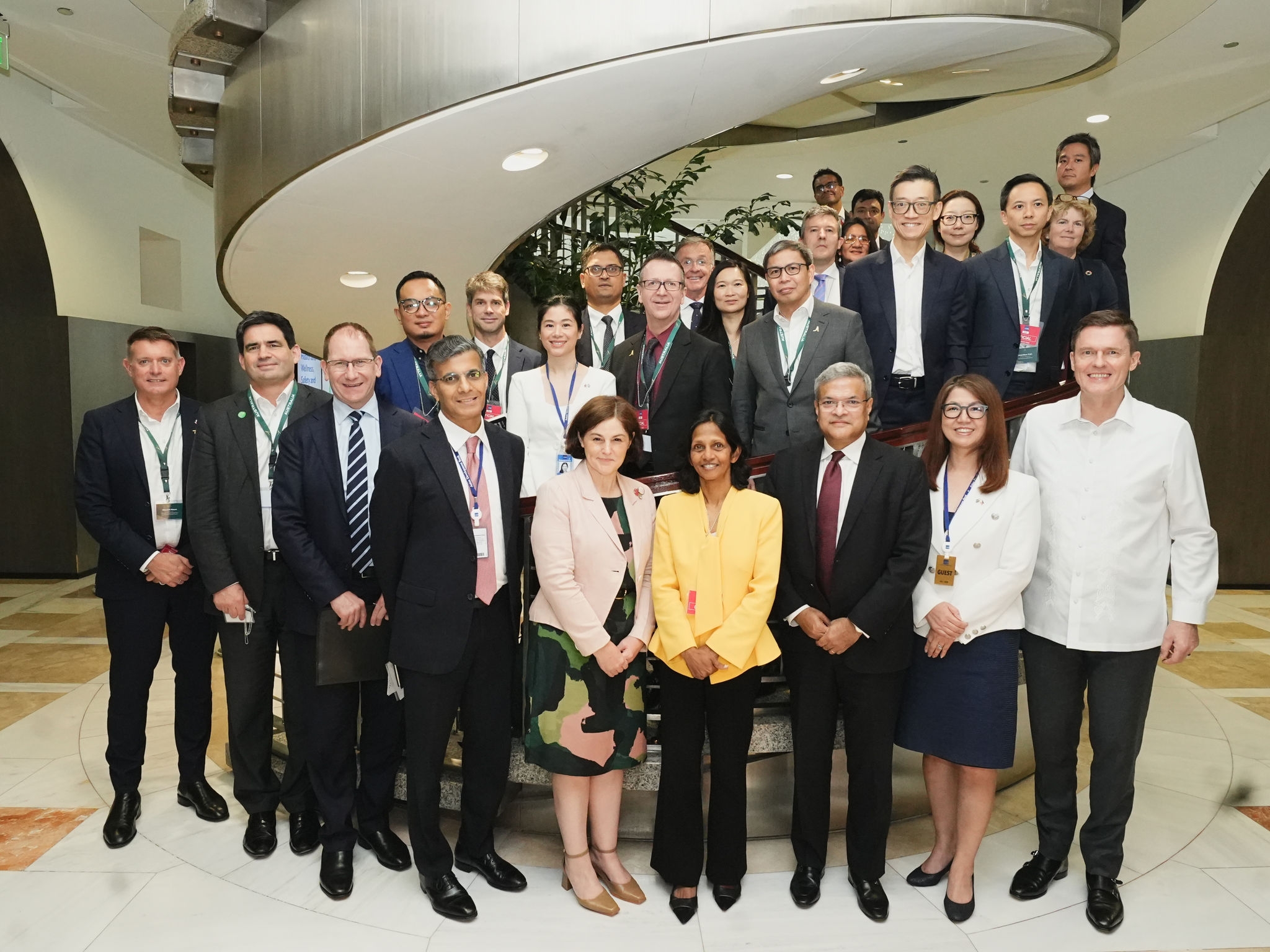The government is now operating in accordance with the Guidance on Caretaker Conventions, pending the outcome of the 2025 federal election.
A high-powered delegation of Australian investors and businesses visited the Philippines on a two-day mission to boost two-way investment and trade ties.
The Philippines is the fastest-growing economy in Southeast Asia with the second largest population. The mission aimed to explore opportunities in infrastructure, green energy transition, resources and agribusiness. It also aimed to deepen understanding of the Philippines’ macroeconomic, fiscal and sector-specific policies.
The mission was led by Ms Shemara Wikramanayake, Business Champion for the Philippines and CEO and Managing Director of Macquarie Group. Macquarie Group has operated in the Philippines for over 20 years and has over 1,000 staff in Manila.
Accompanying Ms Wikramanayake was Austrade Chief Executive Officer Xavier Simonet and Export Finance Australia Managing Director and Chief Executive Officer John Hopkins. Export Finance Australia is administering the Australian Government’s new A$2 billion Southeast Asia Investment Financing Facility (SEAIFF).
The delegation comprised 14 organisations, with institutional investors representing A$1.7 trillion in funds and assets under management. The corporate delegates had a collective market capitalisation of A$120 billion.
High-level government engagement on investment
Day one of the mission focused on briefings with senior government officials. The delegation was received by Secretary Frederick Go, Special Assistant to the President for Investment and Economic Affairs, alongside eight Cabinet Ministers and three Agency Heads.
This level of seniority underscored the Philippines’ commitment to strengthening ties with Australia, and the high level of support investors have from both governments.
Key policy discussions covered emerging pathways for foreign investment. The Philippine Government has undertaken steps to open the economy to foreign investment. This is part of its plan to reach upper middle-income status by 2025 and eradicate poverty by 2040.
For instance, a review of the Public Services Act opens up sectors like mining and agrifood to foreign participation. Renewable energy projects that can be 100% foreign-owned emerged as a significant opportunity. The Philippines also has $1.3 trillion in largely untapped deposits of gold, copper and other minerals. Recent changes to mining permits and open-pit mining offer investment opportunities.
The delegation met with the Department of Industry, National Economic and Development Authority (NEDA), and the Central Bank. Discussions focused on sector-specific opportunities in agriculture, infrastructure and energy. The Philippines’ need for high-quality investment in capital, expertise and technology in these sectors offers opportunities for Australian investors.
The Asian Development Bank highlighted opportunities for Australian investors to invest in agrifood and infrastructure projects across Southeast Asia, including the Philippines.

The delegation, led by Ms Shemara Wikramanayake, explored trade and investment opportunities in the Philippines.
Progressing local partnerships
The second day of the mission centred on advancing commercial opportunities and forging deeper partnerships with local businesses. A Breakfast Forum, hosted in partnership with the Makati Business Club (MBC) and Australian-New Zealand Chamber of Commerce (ANZCHAM), set the tone for a day of networking and discussions.
Delegates engaged with key Philippine conglomerates, including Ayala Corporation, Metro Pacific Investments Corporation, and SM Investment Corporation, to reinforce their intent to explore collaborative opportunities.
Strong business and cultural links
The Philippines has the potential to become an important trade and investment partner. The nation is currently Australia’s 20th largest trading partner. Two-way trade in goods and services was worth $10.2 billion in 2023. Two-way investment was valued at $8.7 billion in the same year.
Two-way trade and investment is supported by the ASEAN-Australia-New Zealand Free Trade Area (AANZFTA) and the Regional Comprehensive Economic Partnership (RCEP) Agreement. Australia and the Philippines are also pursuing high-standard commitments related to trade, supply chains, clean energy, and anti-corruption and tax through the Indo-Pacific Economic Framework (IPEF).
The Australia-Philippine relationship is enriched by strong people-to-people links, including Australia’s large Filipino community. More than 400,000 Australians are of Filipino descent, making them Australia’s fifth largest diaspora community.
Next steps
Investment Deal Teams in Australia and Southeast Asia will work closely with investors and stakeholders to support their investment journeys.
Sign up to receive the latest news and insights about Southeast Asia.
Go further, faster with Austrade
Austrade can help Australian businesses to explore investment opportunities in Southeast Asia.